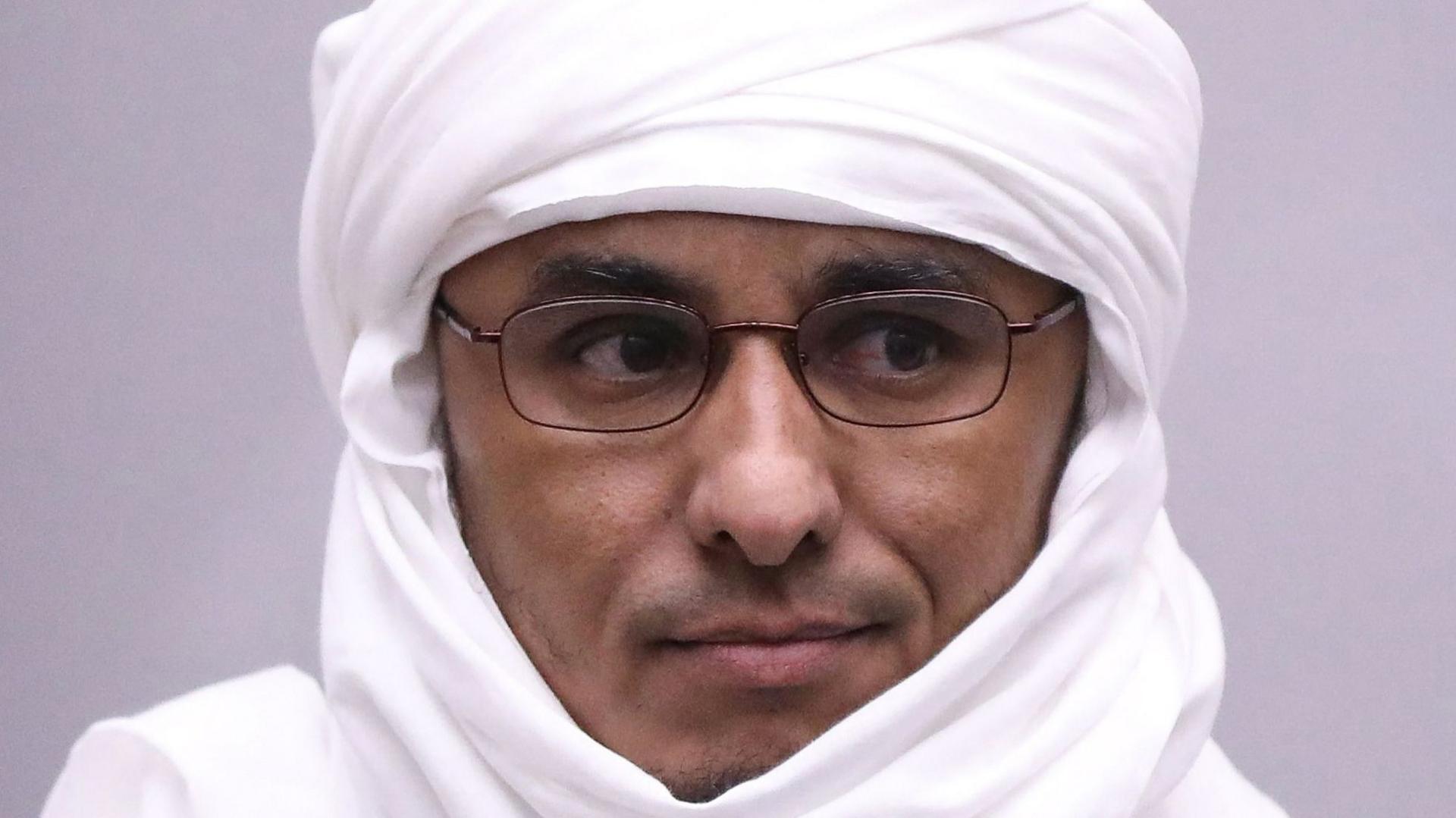Jihadist police chief of Timbuktu jailed for war crimes

- Published
The International Criminal Court (ICC) has sentenced the former head of the Islamic police in Mali's historic city of Timbuktu to 10 years in prison for war crimes.
Prosecutors said al-Hassan ag Abdoul Aziz ag Mohamed ag Mahmoud led a "reign of terror" in the city after it was overrun in 2012 by the al-Qaeda-linked Ansar Dine group.
He was found guilty in June this year of torture, overseeing public amputations by machete and the brutal floggings of residents, including children.
Hassan, aged 47, was acquitted on charges of rape and sexual slavery, as well as destroying Timbuktu's ancient mausoleums.
Hassan looked emotionless after his sentence was read out on Wednesday, at the ICC in The Hague, Netherlands.
The jail term "is proportionate to the gravity of the crimes and the individual circumstances and culpability of Mr Al Hassan," said presiding judge Kimberly Prost.
"It adequately reflects the strong condemnation by the international community for the crimes committed by him and acknowledges the significant harm and suffering caused to the victims," she added.
Some rights groups had expressed disappointment that Hassan was charged but then acquitted of gender-based crimes.
According to the AFP news agency, the court heard that some women were arrested then raped in detention under the rule of Ansar Dine.
The ICC ruled that crimes of sexual violence had taken place, but Hassan was not found to bear responsibility for them.
Hassan has 30 days to appeal against the judgement and reparations to the victims will be addressed in due course.
He was handed over to the ICC in 2018 by the Malian authorities - five years after French troops helped liberate Timbuktu from the jihadists.
Ansar Dine was one of several Islamist militant groups to exploit an ethnic Tuareg uprising to take over cities in northern Mali.
Another Islamist militant leader who destroyed ancient shrines in Timbuktu was sentenced to nine years in jail in 2016.
Ahmad al-Faqi al-Mahdi admitted to leading fighters who destroyed historic mausoleums at the world heritage site in Mali in 2012.
Timbuktu was a major centre of Islamic learning between the 13th and 17th Centuries and was added to the Unesco world heritage list in 1988.
You may also be interested in:

Go to BBCAfrica.com, external for more news from the African continent.
Follow us on Twitter @BBCAfrica, external, on Facebook at BBC Africa, external or on Instagram at bbcafrica, external